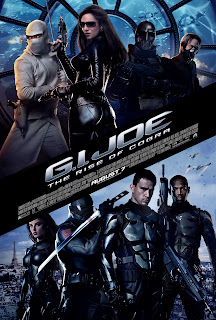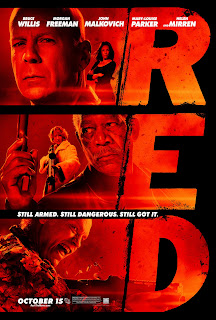
MOVIE DETAILS
Rating: 6.0 out of 10
Length: 90 minutes
Release Date: January 19, 2014
Directed by: Joe Manganiello
Genre: Documentary
TRAILER
OVERVIEW – La Bare
“La Bare” is “Magic Mike” in real-life. Star of the fictional feature, Joe Manganiello, keeps his clothes on and takes a turn behind the camera as director of the documentary. The focus is on the Dallas-based La Bare, which, according to the film, is the most famous male strip club in the world. Originally pitched as a reality television show by first-time director Manganiello, the documentary is designed to provide an inside look into the real world of male stripping.
Rather than being forced into the life, depressed or victimized, these men clearly choose the life of the exhibitionist. Manganiello acts as interviewer in the film, showing respect to his subjects while also asking questions designed to illicit insightful and honest responses. The resulting film showcases a side of the industry that is much more than thongs and well-oiled muscles.
In a film designed to turn the spotlight from the action on stage to what happens behind the curtain, Manganiello spends a good amount of screen time on the performance aspects of the industry. The typical, tantalizing glimpses of carefully choreographed routines, screaming female audience members and even a quick glimpse of male genitalia are all on display throughout the film. A particularly amusing segment is the club’s amateur night.
Here, the average Joes and those wanting to join the ranks of La Bare’s performers can take to the stage to show their moves. Despite the cultural stigma against strippers, this is the only sadly pathetic segment of the film strictly because some of the wannabe dancers are so comical in their attempts to be sexy. The segment is a little long, given the length of the film, but it does give a little bit of needed levity. It also keeps the documentary from getting too bogged down in the interviews.
One of the insights given into the industry through both interviews and performance segments is the amazing lengths these men go to in order to please their customers. The club’s manager, Randy Ricks, nicknamed the “Master Blaster,” is a nearly 60-year-old veteran exotic dancer with 34 years in the industry. He serves as fitness guru to the dancers that he affectionately considers his “sons.” His 78-year-old mother is the nutritionist for the club. According to interviews, Ricks spends a large amount of time coaching his team of dancers.
He makes sure that they eat right and use exercise regimens designed to produce maximum results. Rather than just making up dances as they go along, each man is given a character that plays to his strengths. Dancers perform solo and group routines choreographed by a Las Vegas professional. The dancers all speak of how serious they take their lives as dancers, no matter from what background they came to the show. Interviews with audience members show just how much all of that hard work and attention to detail is appreciated during shows.
Despite its honest approach to the industry and how the shows are created, the film does little to shed light on darker sides of the industry or the lives of these men outside of the club. There is mention of clients paying the dancer’s bills, hiring dancers for private shows and events and an allusion to exchanging money for sex, though none of the dancers come right out and admit to it. Another dark subject is the mention of the unexplained murder of fellow dancer Ruben “Angelo” Riguero. Described by co-workers as a great performer and an all-around nice guy, Riguero was shot outside of a club during an altercation.
Charges against the suspect in the shooting were dropped for undisclosed reasons. This leads the film to show a bit of bias, as it is insinuated that neglect on behalf of the police department resulted in the murder being an unsolved case. Despite the seriousness of the topics, these two areas are given little screen time, though the film is dedicated to Riguero. The line of questioning posed by Manganiello strays away from delving too deeply into the potentially dark side of the business, preferring instead to focus on more superficial aspects.
Manganiello’s documentary shows La Bare to be a business at heart that is taken very seriously by everyone involved. Rather than allowing it to be a seedy place that patrons feel awkward about visiting, the ownership has built a brand and a positive reputation with its location and workers that make customers proud of their patronage. The insights provided by the film may be limited in some aspects, but it is an insightful, honest piece about what work-life is like for these individuals and how their commitment to the club has to be kept separate from who they are in their personal lives or how their work lives become their whole lives.
For more like La Bare, You Must Watch visit Yesmovies.
You might also like :








